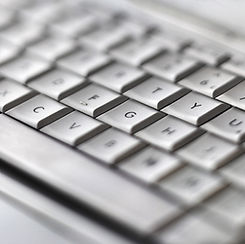JWelsh Editorial and Writing Coaching
The Basics of Editing

“The first draft is black and white. Editing gives the story color.”
— Emma Hill

Writing Coaching
Manuscript Evaluation
Developmental Editing
Copy Editing
Proofreading
Each step is important to the journey an author takes with his or her editor. This journey may begin with a concept and before a word has ever been written, or it may start after a draft manuscript is completed.
WHY USE JWELSH EDITORIAL?
Along with a BSBA in Marketing from the University of Denver, I also hold an editing certificate from the University of Chicago, specializing in developmental editing, one of the few institutions in the country offering that program. In addition, I was an adjunct professor in the university's Editing Certificate program, teaching a high-level Developmental Editing for Fiction class.
As an experienced developmental editor and copy editor of both nonfiction and fiction books for more than sixteen years, I was first an editor in a traditional publishing house and now provide freelance editing and writing coaching services.
My experience as a marketing director helps me evaluate and edit manuscripts for both readability and marketability, which is a bit rare for freelance editors, but a definite bonus for the authors I work with. I utilize the most recent Merriam-Webster Dictionary and the Chicago Manual of Style, the standard style guide for most books.
I've been involved in the publishing industry through the following organizations:
-
Chicago Women in Publishing, past VP and president
-
Reedsy
-
Worldwide Who’s Who in Business
The most important reason to use JWelsh Editorial and Writing Coaching is my passion for creating great books through the editing process. I believe manuscript editing should be fun as well as productive. I love working closely with new and aspiring authors to help them reach their publishing goals and see their books in print. And . . . my prices are reasonable, especially given the level of expertise.
How to Work with a Freelance Editor
The relationship between an author and editor is one of give and take; they must relate well to each other and develop an implicit sense of trust. I always offer a free sample edit (of ten or so initial pages) of a manuscript before the formal relationship is established. This gives the authors an opportunity to see how I work with their material, and it gives me an opportunity to see how much work any given manuscript might require. Once both of us are comfortable, we begin the work of editing and revising.
It is not unusual for a manuscript to go through several revisions, and that involves sending the edited manuscript (done using Track Changes in MS Word) back and forth to one another. Editors and authors can communicate in several ways: overall questions are primarily resolved through e-mail or, occasionally, phone conversations, but specific notes, questions, and recommendations about any given part of a manuscript happen through the Comments tool in Word. These are called "author queries." Depending on the manuscript, an editor may only have a few queries - or there may be many. Authors answer these queries and ask their own questions through Comments as well.
This process continues until both author and editor are satisfied with the manuscript (typically two full rounds), which means it can then go on to the next phase of the publishing process. It takes time for both people to complete their work; editing should be viewed more like a marathon than a sprint.
To see the books I've edited and what other authors say about working with me, go to the Authors page.
Tip: The industry standard for editing and publishing manuscripts is for the text to be delivered in a Word document set in double-spaced 12 pt. Times New Roman font with all images removed. The images are sent to the book designer, printer, or e-book converter separately.
JWelsh Editorial and Writing Coaching / ©2025 Jill Welsh